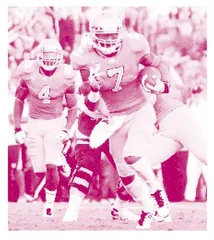Module 2 Highlights of My Senior Year

跟踪导练(一)
阅读理解
NMET may be a new word to most. But if we put it “College Entrance Examination”, it will be familiar to most of us, who have had bone-biting experience and sweet memory of having had it and enjoying a relatively successful and full life.
NMET is the most important way of choosing wise heads both in history and at present. Maybe it is because it’s harder to invent a new way that NMET will still be playing an important part in the education in China. No matter how well you are doing and how good you are at your schooling, the last 3 or 4 days, the 7 sets of paper work and your final scores will give you the “final sentence”.
Those lucky students would be enjoying the fruitful rewards while the failed ones would have to take in bitter and tearful results as if they had done nothing during the previous years. It is the same with their parents. Even worse, our society is now in the habit of making favorable judgment over those lucky ones without showing enough care to the failed ones. In this way those who failed are under pressure beyond their ability to bear, which will naturally lead to some tragedies after the public announcement of the NMET results.
I can’t predict anything but I really wish all the NMET takers could get a satisfactory result. I call on more care from parents and the society about those who need our care. Though we have no way to have the system changed, we can still do something to change what we can change.
When one door closes, another window opens. So long as you are on the track and spare no effort, there should be a bright future not far ahead of you.
1. What does the underlined word “bone-biting” in Paragraph 1 probably mean?
A. Unfortunate. B. Unforgettable. C. Happy. D. Brave.
2. What will decide your fate according to Paragraph 2?
A. Your good schooling. B. The final scores of NMET.
C. Hard working. D. Being well-educated.
3. What makes matters worse for the failed students according to Paragraph 3?
A. Lack of care. B. Pressure from parents.
C. Worries about the future. D. Favorable judgment over the lucky ones.
4. To whom does the author write the text?
A. Parents. B. Teachers. C. Officials. D. Students.
阅读七选五
How to Plan out Your Week in Advance
Having a weekly routine is important. It allows you to know exactly the direction in which you’ re heading and what you need to do in a week. So, how do you plan out your week?
Figure out the big things.
Take some time each Sunday to think about what has to happen the following week. Most weeks will have the same basic building blocks—the “big things” that never change. 1 But for me they include putting in a full workday, ensuring each child practices their instrument, getting at least 8 hours of sleep, cooking a good meal each night, and working out 4—5 times.
Think about the small things.
2 Medical appointments, coffee dates with friends, children’s birthday parties or play dates. I have rules for these sorts of events: they must be scheduled for evenings or weekends. 3 Otherwise, they may affect the quality of my work.
Set your goals.
If there are specific things you need or would like to accomplish in a given week, list them and plan for them. 4 Executive (行政的) coach Rafael Sarandeses recommends setting five weekly goals and three daily ones. That’s a generous number that’s sure to keep your momentum (动力) going.
5
I’m a firm believer in morning hours setting the tone for the rest of the day. I think it’s important to get up at the same time every day. It doesn’t have to be early, but it should be consistent.
A. Have a morning routine.
B. Everyone’s big things will look different.
C. Planning is a habit that must be developed.
D. I try not to let them occupy my work hours.
E. Give it a try and see what a difference it makes.
F. These could be personal goals or professional goals.
G. Next come the small things that change week by week.
1. 2. 3. 4. 5.
跟踪导练(二)
完形填空
History rocks! But your poor history teacher was not able to 1 all the fun little bits. Whether these bits were sad, ridiculous, or heartwarming, we think it’s a shame that you 2 out the bits. And now we help you make up for that.
Famous for his beard, Abraham Lincoln was an incredible 3 . Though he wasn’t actually born in a very poor family, he did have a relatively 4 childhood. Hard labor was part of the daily life in the area where Lincoln grew up, and, at the age of nine, he 5 his mother because of disease. As president, he would grow to be history’s 6 president of the United States, standing proudly at 1.93 meters. Even after he died, his story didn’t 7 . In 1876, a group of bad fellows wanted to hold Lincoln’s body for ransom (赎金) at the fee of $20,000 and the 8 of one of their accomplices (同谋犯). They were caught and 9 to a year in prison.